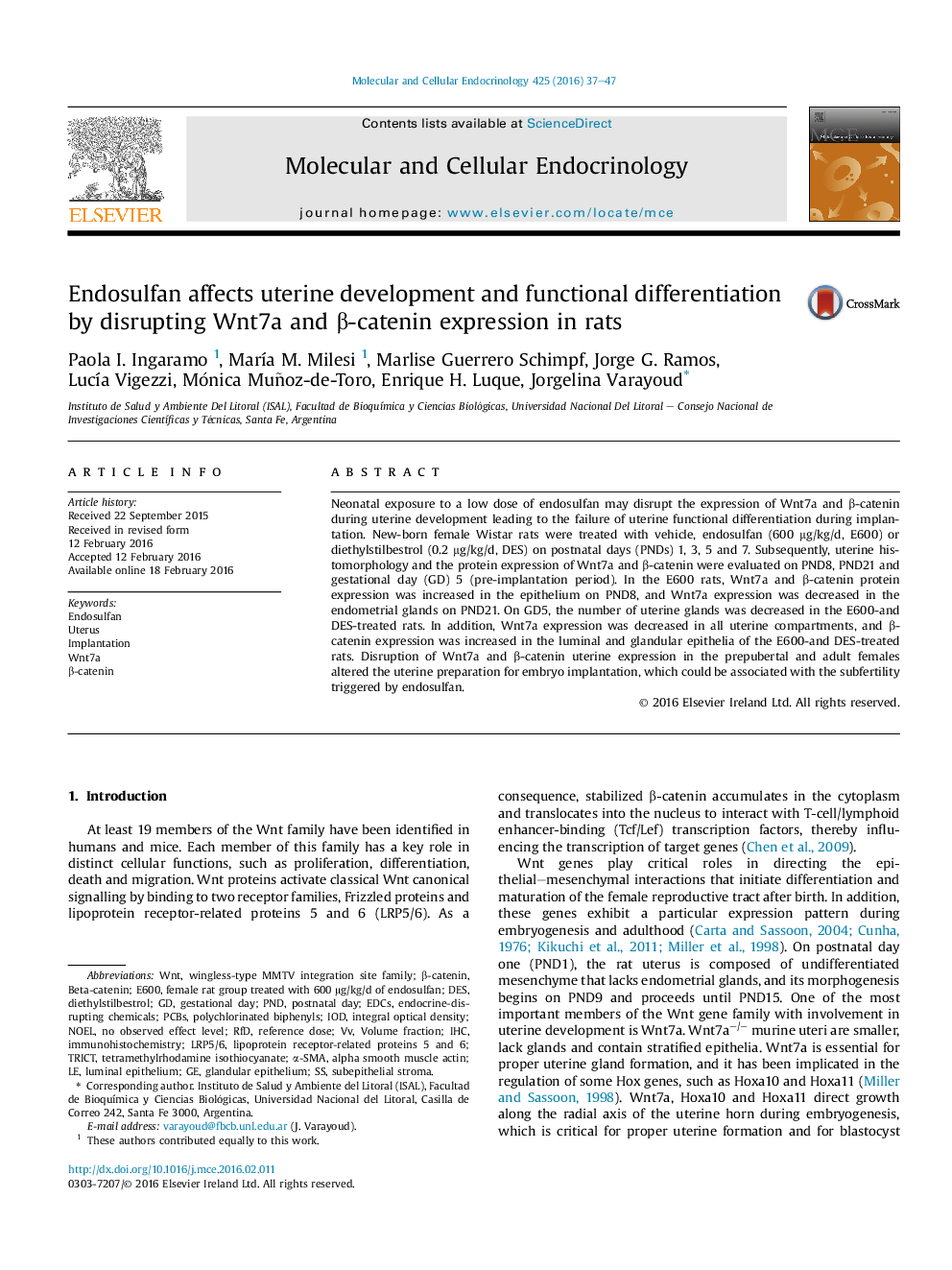| Article ID | Journal | Published Year | Pages | File Type |
|---|---|---|---|---|
| 2195624 | Molecular and Cellular Endocrinology | 2016 | 11 Pages |
•Endosulfan alters uterine Wnt7a/β-catenin expression in prepubertal and adult rats.•Impaired Wnt signaling is linked to lack of uterine glands during implantation.•Aberrant Wnt signaling may be involved in endosulfan-induced implantation failures.
Neonatal exposure to a low dose of endosulfan may disrupt the expression of Wnt7a and β-catenin during uterine development leading to the failure of uterine functional differentiation during implantation. New-born female Wistar rats were treated with vehicle, endosulfan (600 μg/kg/d, E600) or diethylstilbestrol (0.2 μg/kg/d, DES) on postnatal days (PNDs) 1, 3, 5 and 7. Subsequently, uterine histomorphology and the protein expression of Wnt7a and β-catenin were evaluated on PND8, PND21 and gestational day (GD) 5 (pre-implantation period). In the E600 rats, Wnt7a and β-catenin protein expression was increased in the epithelium on PND8, and Wnt7a expression was decreased in the endometrial glands on PND21. On GD5, the number of uterine glands was decreased in the E600-and DES-treated rats. In addition, Wnt7a expression was decreased in all uterine compartments, and β-catenin expression was increased in the luminal and glandular epithelia of the E600-and DES-treated rats. Disruption of Wnt7a and β-catenin uterine expression in the prepubertal and adult females altered the uterine preparation for embryo implantation, which could be associated with the subfertility triggered by endosulfan.
